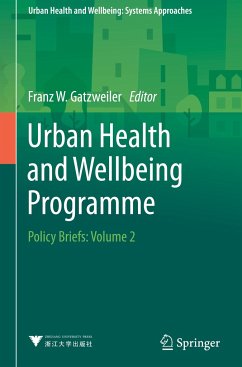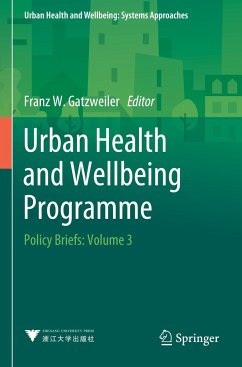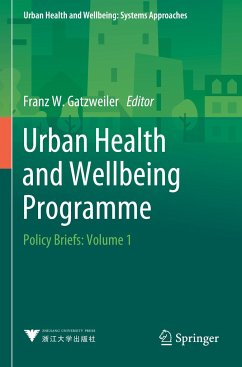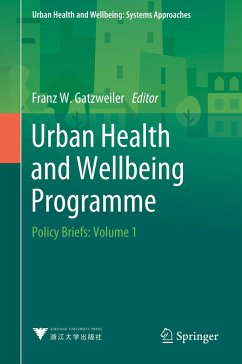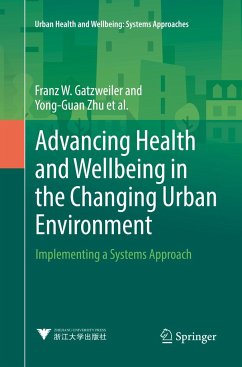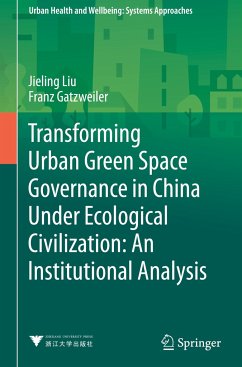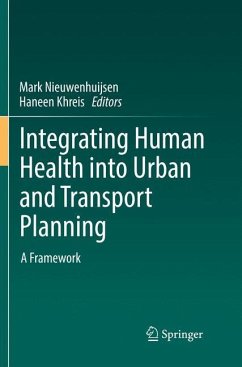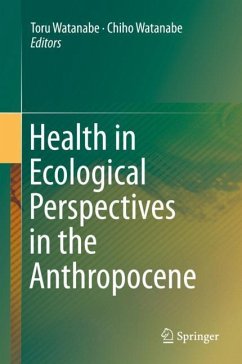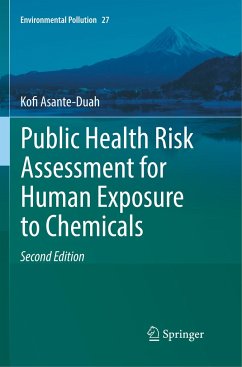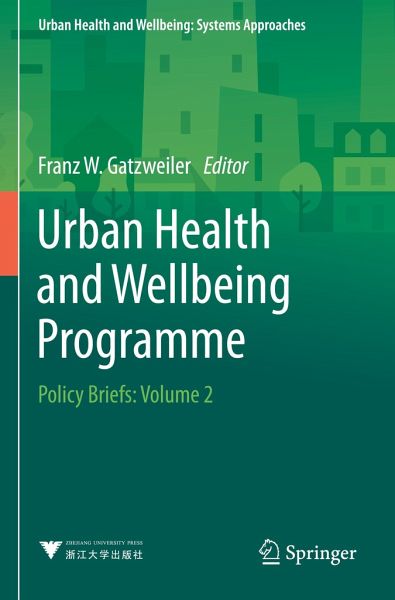
Urban Health and Wellbeing Programme
Policy Briefs: Volume 2
Herausgegeben: Gatzweiler, Franz W.
Versandkostenfrei!
Versandfertig in 6-10 Tagen
65,99 €
inkl. MwSt.

PAYBACK Punkte
33 °P sammeln!
This book is a collection of policy briefs produced from research presented at the 16th Conference on Urban Health in Xiamen, China, November 4-8, 2019, under the theme "People Oriented Urbanisation: Transforming Cities for Health and Well-Being", co-organized by the Urban Health and Wellbeing (UHWB) programme of the International Science Council (ISC).The UHWB programme takes an interdisciplinary, cross-sectoral and systemic view on issues of health and wellbeing in cities which include the urban economy and finance systems, education, employment, mobility and transport, food, energy and wate...
This book is a collection of policy briefs produced from research presented at the 16th Conference on Urban Health in Xiamen, China, November 4-8, 2019, under the theme "People Oriented Urbanisation: Transforming Cities for Health and Well-Being", co-organized by the Urban Health and Wellbeing (UHWB) programme of the International Science Council (ISC).
The UHWB programme takes an interdisciplinary, cross-sectoral and systemic view on issues of health and wellbeing in cities which include the urban economy and finance systems, education, employment, mobility and transport, food, energy and water resources, access to public services, urban planning, public spaces and urban green, as well as social inclusion. Contributions to this book have been made by scientists from multidisciplinary research fields.
The policy briefs in this book present the background and context of an urban health issue, research findings and recommendations for policy/decision-makers and action-takers. In some cases, they inform about relevant events and developments from the science community or important opinion pieces which address health emergencies, like the current COVID-19 pandemic.
The book is intended for citizens and political decision-makers, who are interested in systems perspectives on urban health and wellbeing, examples of how to deal with the increasing complexity of cities and the accompanying environmental and social impacts of increasing urbanization. Furthermore, it hopes to inspire decision-makers to facilitate finding solutions, in order to reach the goal of advancing global urban health and wellbeing.
The UHWB programme takes an interdisciplinary, cross-sectoral and systemic view on issues of health and wellbeing in cities which include the urban economy and finance systems, education, employment, mobility and transport, food, energy and water resources, access to public services, urban planning, public spaces and urban green, as well as social inclusion. Contributions to this book have been made by scientists from multidisciplinary research fields.
The policy briefs in this book present the background and context of an urban health issue, research findings and recommendations for policy/decision-makers and action-takers. In some cases, they inform about relevant events and developments from the science community or important opinion pieces which address health emergencies, like the current COVID-19 pandemic.
The book is intended for citizens and political decision-makers, who are interested in systems perspectives on urban health and wellbeing, examples of how to deal with the increasing complexity of cities and the accompanying environmental and social impacts of increasing urbanization. Furthermore, it hopes to inspire decision-makers to facilitate finding solutions, in order to reach the goal of advancing global urban health and wellbeing.





